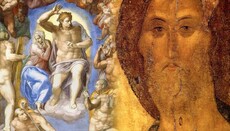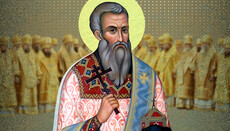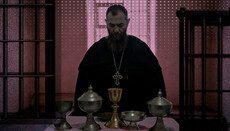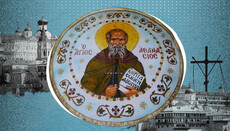Groundhog day or eternity? How to stop "killing" time and start living

How to stop "killing time"? We seek answers in the Gospel, ancient mythology, and cult cinema.
Chronos is quantitative, sequential, measurable time. It is the linear flow we encounter in our daily lives. Within this historical time, our soul experiences its sensations, feelings, and emotions towards all the events that occur within it.
Kairos is qualitative time. Literally "the opportune moment," the moment for action. This is time defined by significance rather than duration.
In their mythology, the Greeks depicted Kairos with a single lock of hair on his forehead and a bald back of the head. This symbolized the fleeting nature of opportunity. It could only be caught by this single lock at the moment of its approach, and once it passed by, there was nothing to grasp.
A classic example of the relationship between chronos and kairos is the Gospel story of Martha and Mary.
It illustrates the conflict between two types of time within a single event. Martha was absorbed in the cares of service and preparation. Her actions were subject to Chronos – the execution of sequential, necessary, but distracting tasks. Mary sat at the feet of Jesus and listened to His Word. The Savior said that she "has chosen the good part." Her decision was an acknowledgment of Kairos – that the immediate presence and teaching of the Messiah was a favorable, unique moment that could not be missed for chronological concerns.
Apostle's Advice
When the apostle writes: "See then that you walk circumspectly, not as fools but as wise, redeeming the KAIROS (time)" (Eph. 5:15-16), – He gives a specific directive. Do not let your time (the flow of Chronos) simply pass in vain or be captured by worldly, "evil" (that is, sinful or meaningless) deeds. Actively seek and "purchase" moments of Kairos (favorable opportunities) for spiritual growth and service.
The redemption of Kairos transforms time from a neutral backdrop (Chronos) into a realm of moral choice.
Often kairos is not just an opportunity, it is a crisis that allows a person to reach a qualitatively different level of spiritual life.
The "Groundhog Day" trap
The theme of Chronos and Kairos is vividly played out in the movie "Groundhog Day". The main character, Phil, falls into the trap of Chronos. Time turns into a senselessly repeating sequence of the same events. The attempt to escape this trap through selfishness - drunk driving, deception, self-destruction – fails.
The situation changes only when Phil, literally according to the apostle's word, begins to consciously use each repeating day for qualitative improvement: learning languages, playing the piano, helping strangers, and most importantly, for sincere love. Then a turning point occurs. The day does not end until Phil lives it with true meaning and love. That is, until he fills it with Kairos.
"The Grey Gentlemen" and the theft of life
The best illustration of the Kairos-Chronos relationship is the novel by German writer Michael Ende, published in 1973. It is considered a classic of children's and youth literature but has a deep philosophical subtext relevant to adults as well.
According to the plot, certain "Grey Gentlemen", who call themselves representatives of the Time Savings Bank, convince people to save their time and live quickly, profiting from this economy. People become obsessed with Chronos (schedules, efficiency), losing joy, creativity, and humanity in the process.
But in this world of constant time pressure, a girl named Momo appears. She possesses a wonderful gift that people have already lost. Momo knows how to listen. When people talk to Momo, they slow down their thoughts, calm down, and essentially enter Kairos. They stop worrying about "saved time" (Chronos) and begin to live in the Moment, where ideas, friendship, and true happiness are born.
Ende shows that obsession with quantitative, saved Chronos deprives life of Kairos (that is, quality, meaning). True time is the time lived meaningfully in the present.
The novel "Momo" is a deep allegory asserting the primacy of the quality of life over its quantitative metrics and revealing the nature of modern evil. It calls for an ethic of attention: true time (kairos) is not a resource to be saved but the fullness of experiencing the present moment, filled with meaning, creativity, joy, and love. The rush imposed by the "Grey Gentlemen" is a form of alienation, turning a person into a joyless mechanism.
Evil in this novel is presented not as demonic passion, but as parasitic, cold pragmatism and emptiness.
Momo and her gift of genuine listening and presence is a form of grace that returns to people their stolen souls and the ability to live. The conflict between Momo and the Grey Gentlemen is a cosmic battle between Life (warmth, color, kairos) and Death (cold, grayness, empty chronos). Salvation from depersonalizing evil and the acquisition of true life lies in selfless humanity, love, and the ability to value each moment without chasing ephemeral "efficiency".
Eternity in the moment
Orthodoxy does not oppose Chronos and Kairos. Both are gifts from God.
Chronos measures our earthly time, in which human life unfolds with its cares, labors, expectations, and inevitable end. This is the time that God mercifully granted to man for repentance and salvation. We value Chronos as a "field" of spiritual struggle and growth.
And Kairos is a unique point, a favorable opportunity when Eternity breaks into Chronos. It is not an abstract philosophical concept, but a personal encounter: a moment of prayer when the soul feels the closeness of God; a moment of Communion when the believer unites with Christ; a moment of mercy when a person sees the face of God in their neighbor.
Our task is not to flee from Chronos but to try to fill it with the continuous search for and experience of Kairos.
Chronos is the time of life given to us so that in each of its moments we can say "yes" to God and thereby meet the gracious moment of Eternity.











